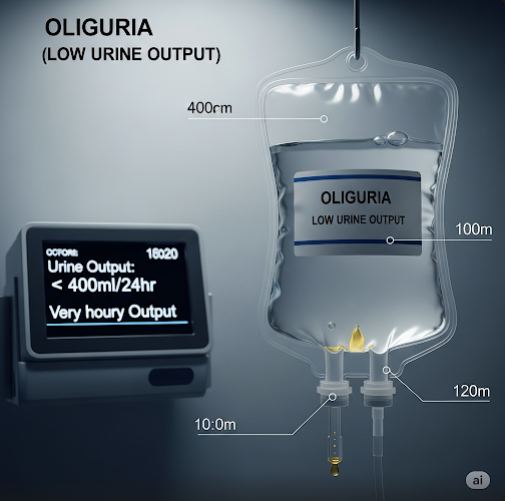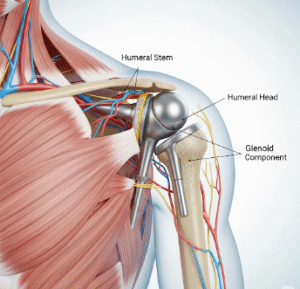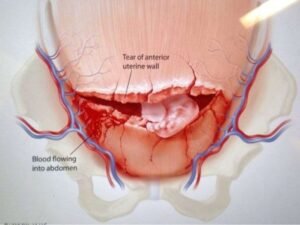Overview
Oliguria refers to abnormally low urine output, typically defined as less than 400 milliliters (about 13.5 ounces) of urine per day in adults. It is a potential sign of serious underlying medical conditions, including kidney dysfunction, dehydration, or urinary tract obstructions. Oliguria is not a disease itself but rather a symptom that requires prompt evaluation to determine and treat the root cause. Left unaddressed, it can lead to severe complications such as acute kidney injury or organ failure.
What is Oliguria?
Oliguria is a condition in which the body produces an unusually small amount of urine. In healthy adults, the average daily urine output is around 800 to 2,000 mL, depending on fluid intake and other factors. Oliguria is clinically recognized when output drops below 400 mL per 24 hours in adults, or less than 1 mL/kg/hr in infants and children. It may occur suddenly (acute) or develop gradually and is often associated with impaired kidney function or reduced blood flow to the kidneys.
Symptoms
The key symptom of oliguria is reduced urination, but it may be accompanied by other signs depending on the cause:
- Noticeably low volume of urine
- Dark, concentrated urine
- Swelling in the legs, ankles, or face
- Fatigue or weakness
- Nausea or vomiting
- Difficulty breathing (in fluid overload cases)
- High blood pressure
- Confusion or changes in mental state in severe cases
Causes
Oliguria can result from multiple causes, often categorized into three groups:
1. Prerenal (before the kidneys):
- Severe dehydration
- Low blood pressure or shock
- Heart failure
- Blood loss
- Liver failure
2. Intrarenal (within the kidneys):
- Acute kidney injury (AKI)
- Glomerulonephritis
- Toxins or medications damaging kidney tissue
- Infections affecting the kidneys
3. Postrenal (after the kidneys):
- Urinary tract obstruction (e.g., kidney stones, enlarged prostate)
- Bladder outlet obstruction
- Urethral stricture
Risk Factors
Several conditions can increase the risk of developing oliguria:
- Advanced age
- Chronic kidney disease or diabetes
- Recent major surgery or trauma
- Severe infections or sepsis
- Use of nephrotoxic drugs (e.g., NSAIDs, certain antibiotics)
- Low fluid intake or excessive fluid loss (vomiting, diarrhea, sweating)
Complications
If untreated, oliguria can lead to serious medical complications, such as:
- Acute kidney injury (AKI)
- Electrolyte imbalances (e.g., high potassium)
- Fluid overload leading to pulmonary edema
- Metabolic acidosis
- Uremia (toxic buildup of waste in the blood)
- Multi-organ failure in severe cases
Prevention
While not all cases are preventable, some steps can reduce the risk of oliguria:
- Stay well-hydrated, especially in hot weather or during illness
- Monitor urine output during hospitalization or recovery from surgery
- Avoid overuse of medications harmful to the kidneys
- Manage underlying conditions such as high blood pressure and diabetes
- Seek prompt medical attention for urinary symptoms or signs of dehydration
Treatment Options in Korea
South Korea offers state-of-the-art nephrology and critical care services for the diagnosis and treatment of oliguria and related kidney conditions. Treatment depends on the underlying cause and may include:
- IV fluid therapy: To correct dehydration or low blood pressure
- Medications: Diuretics, antibiotics for infections, or drugs to control blood pressure
- Dialysis: In severe cases of kidney failure where waste must be removed manually
- Surgical intervention: To relieve urinary tract obstructions
- Hospital monitoring: For patients with acute or chronic kidney injury
Renowned Korean hospitals like Asan Medical Center, Seoul St. Mary’s Hospital, and Samsung Medical Center have dedicated nephrology and urology departments with advanced diagnostics, 24/7 monitoring, and high-quality inpatient care to manage complex cases of oliguria and renal dysfunction.













